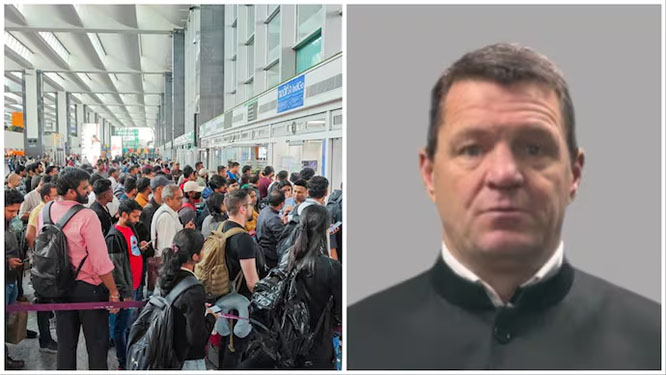
Bangalore, September 18: India's tryst with Mars will begin in November 2013 to explore the red planet's atmosphere and search for life-sustaining elements, a top space official said late Monday.
"We are scheduling to launch the Mars mission Nov 27, 2013 when the red planet will be closer to the earth for injecting our spacecraft into its elliptical orbit," Indian Space Research Organisation (ISRO) chairman K. Radhakrishnan told reporters here.
The Rs.470-crore Mars mission will demonstrate India's capability to send a spacecraft 55 million km away from earth and look for life-sustaining elements 500 km away from the Martian surface.
The Indian space agency plans to use a high-end rocket (PSLV-XL) to launch the 1.4-tonne Martian spacecraft from its Sriharikota spaceport, about 80 km northeast of Chennai, with nine instruments to study various aspects of the red planet.
"The Mars mission will make India join the elite club of five top nations comprising the US, Russia, Europe, China and Japan, with indigenous technology for a 300-day space voyage from the launch date," Radhakrishnan said.
"If we don't go Mars late next year, we may have to wait for another 27 months (two years & three months) to embark on such an ambitious mission when the earth and the red planet will be closer again," the top scientist pointed out.
As the fourth planet from the sun and smallest celestial object in the solar system, Mars is terrestrial with breath-taking valleys, deserts, craters and volcanoes in a thin atmosphere. Named after the Roman god of war, the red planet has many similarities with earth like the rotation period and seasonal cycles.
"As in the case of Chandrayaan-1, we will have to take the spacecraft first into the earth's orbit from 22,000 km to 200,000 km in stages using the propulsion system and fire the rocket's liquid apogee motor to push it into the Martian orbit after cruising about 300 days," Radhakrishnan observed.
In the run-up to the launch, the space agency plans to augment the ground support station such as the deep space network at Bylalu, about 40 km from this tech hub, and rope in other ground stations in the region.
"As there will be a 20-minute communication delay in receiving signals from the Martian orbiter, we need to have high radio frequency system in the spacecraft and adequate protection for the effective functioning of its digital instruments," the chairman noted.
For ensuring to have the launch on the D-day (Nov 27), the space agency plans to have the entire set-up in place by mid-October 2013







Comments
Add new comment